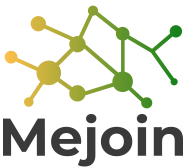Container technologies are nowadays the means of choice to establish a cloud infrastructure in an enterprise. This is also imperative to keep the business running in times of e-commerce and home office. Many things no longer happen „in the company“ but are relocated to numerous locations. That is why the cloud’s performance and scaling have now become an important success factor for a company. The previous statement also applies to the IT department because many tasks can be carried out more efficiently and robustly with container clusters than with alternative infrastructures.
It is not surprising that containers are a mature trend. However, in this article, we would like to compile the six most important trends to bring you up to date with the latest container technology.
The first thing to know is that container technology is becoming the new interface in cloud computing. The market-leading Kubernetes clusters will ensure that cloud and edge computing functions, two key technologies, continue to align. This will allow edge devices to be further promoted, and technologies such as IoT, 5G, and just edge will become more scalable and thus potentially scale more intensively. This is particularly important for high-density and high-frequency business models or scenarios, i.e., when a large number of data has to be transmitted and processed quickly.
Second, cloud applications of Kubernetes clusters are highly automated, as, by nature, these architectures provide the requirements for this. Therefore, it is safe to say that cloud infrastructures have become essential for automation. For this reason, the topics of Application Deployment, Risk Prevention, and Control will also see a huge push soon.
Likewise, the Platform-as-a-Service business models industry will undergo a disruptive transformation through the application-centric and highly scalable upper-layer platforms that run on top of Kubernetes and enable easier operation. These formats will therefore compete against application-centric software that is too complex, which brings many challenges.
Complexity and scaling issues are steadily and noticeably increasing for many enterprises due to the excessive use of AI, IoT, and edge computing. In this context, cloud clusters will become more established through hybrid approaches, and decentralization for edge cloud hosting will increase, opening up new opportunities for UNenterprises in the IoT environment.
In addition to data acquisition from distributed devices, data processing in the cloud will also become an important feature of container technologies. An enterprise’s IT transformation can only succeed if AI and Big Data can be managed quickly and efficiently. Through container technologies, which are subject to a unified cloud-native basis, exactly these evaluations are possible for every company.
Finally, an all-time favorite topic is also becoming a success factor for the various cluster providers: IT security. Although the applications run separately in different containers, the individual building blocks such as the container runtime or lightweight visualization must still provide the necessary security isolations. This will be one of the most important, if not the most important, issues for the providers and companies.
This concludes our little excursion into the world of cloud containers, and we would like to provide you with a few more resources if you would like to read up on the topic of cloud clusters:
Remember our workshop, which will be held on 03/23/2021!


0 Kommentare zu “Scaling for Digitization: Containers in the Enterprise”